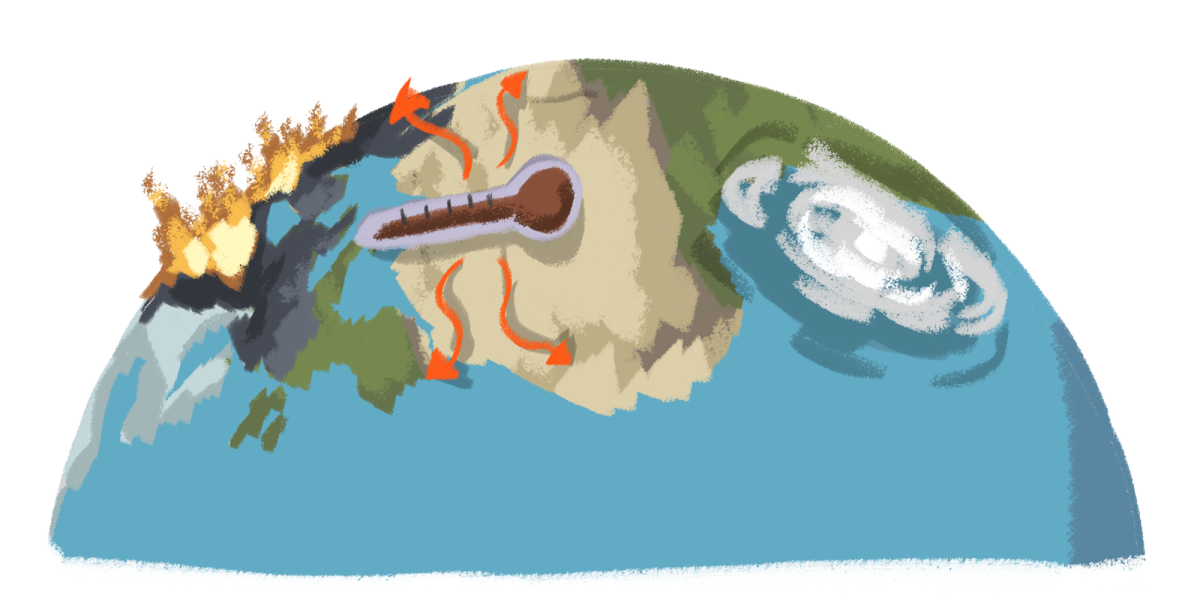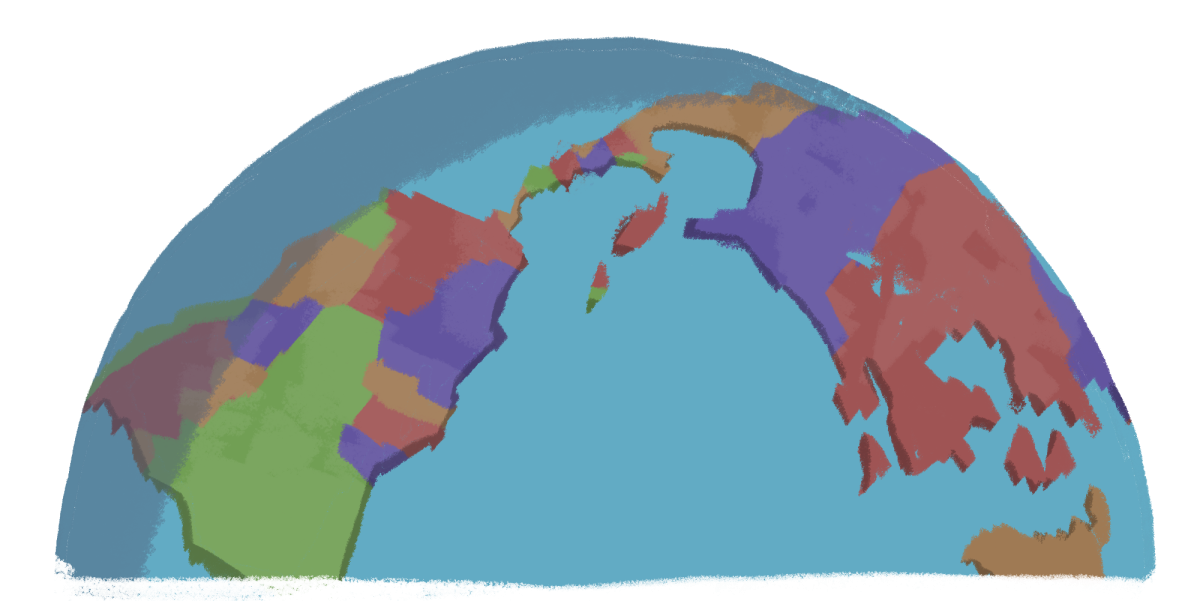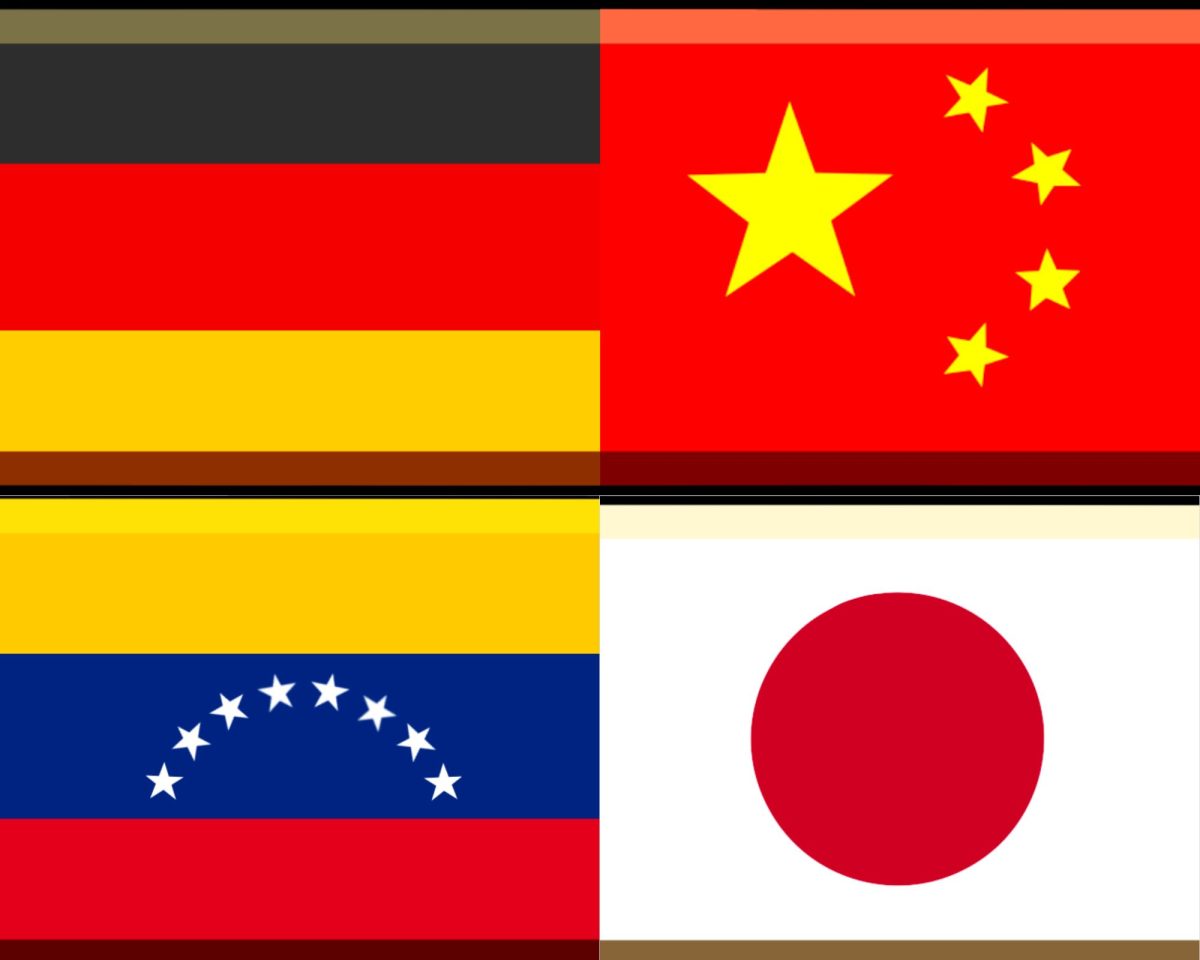Written by Andrew Zhao
The world faces an impending crisis. With greenhouse gas (GHG) emissions at a maximum for the last four hundred thousand years, according to NASA’s Jet Propulsion Laboratory, humanity’s industrialization has led to dark con- sequences for Earth. According to the NASA Goddard Institute for Space Studies, 16 of the 17 warmest years of recorded history have been during the second millennium. Four, possibly five, consecutive hurricanes in Southeast America this fall are indicative of an unhealthy climate. Quickly melting ice sheets are also threatening the livelihoods of coastal cities and island nations. But this is only the beginning: an increase in global temperatures by 4 degrees will lead to the Untied Sates, China and India all becoming uninhabitable deserts, according to Parag Khanna, a research fellow at the Centre on Asia and Globalization. Developed nations such as the U.S., France and Australia must actively combat climate change due to their history of polluting both directly and indirectly.
Climate change is unfair. While all nations are affected by it, the damage done to developing countries is far greater than to developed countries. With a greater economy, infrastructure and technology, devel- oped countries have enough resources to make up for their own damage. Developing countries su er the most, even though their contribution to global emissions is minimal. For example, an article by the Scien- ti c American magazine detailed the current environmental crisis, in which millions of refugees in Bangladesh are being displaced due to super-cyclones that are similar to the recent hurricanes in the U.S. If developed countries are unable to care for these refugees, the least they could do is to reduce the emissions that contribute to Bangladesh’s miseries.
Historically, developed countries have o en emitted massive amounts of pollution. Today, Europe and the U.S. are more economically developed than Asia and Africa. However, estimates by economist Angus Maddison show that India and China owned around 25 percent of the world’s gross domestic product (GDP) before the 19th century, while Europe only owned around 10 percent. is changed in the 19th century when new manufacturing techniques industrialized Europe to the point where it owned 30 percent of the world’s GDP. However, European countries were o en heavily pol- luted during this era. For example, a publication in the Environmental Health Perspectives scientific journal estimated that the Great Smog of London, caused by burning coal, killed at least 4,000 people and affected up to 100,000 people.
Even though this pollution has disappeared, developed countries have still left an
ugly mark on Earth during their industrialization period. The Emissions Database for Global Atmospheric Research states that China currently
has the highest rate of carbon pollution, but the U.S. has historically emitted the most amounts of carbon pollution at around 400,000 metric tons, according to a study by
Oak Ridge National Laboratory. Developed countries must be
held responsible for this accumulated pollution; otherwise they will continue to pollute without any accountability. An entire century of pollution cannot be shoved under the bed. For pen- ance, developed countries should amplify their campaign against climate change.
Developed countries, seemingly clean on the outside, continue to pollute the earth indirectly. Although it seems like developed countries have low pollution rates according to their pollution index, in reality this is because the pollution has been moved to other countries. Consider an Apple iPhone: while Apple is an American company, most of their factories are in China. In other words, iPhone production is still pollut- ing the earth, but the pollution comes from China, rather than the U.S. is conveniently allows developed countries to blame manufacturing centers like China and India for all of their pollution. Such statements are not only hypocritical but self-destructive. Instead of squabbling over who is the worst, developed countries should focus on xing the crisis.
Finally, developed countries have the resources to stop climate change. Developed countries, as hubs of the world’s economy and technology, should naturally be the main leaders in combating climate change. How- ever, developed countries are doing little to combat climate change. e Institute for Policy Studies think tank calculated that the U.S. spends $30 on the military for every $1 spent combatting global warming. e U.S. has the highest nominal GDP in the world, yet it prefers constructing fighter jets over combating climate change. Developed countries are in better shape to combat climate change, yet they are too busy protecting their regional interests.
But perhaps it is not too late. Our world, while getting warmer, is not yet the apocalyptic future envisioned by computer simulations. Developed countries still have the potential to correct their historical pollution by developing and leas-
ing green technology. Electric cars are being developed; perhaps if their technology is shared with developing countries, car emissions will fall. Additionally, developed countries should funnel resources to combat the effects of climate change in places like Bangladesh. If all goes well, humanity can dodge a bullet.
—Zhao, a junior, is a Tech Editor











